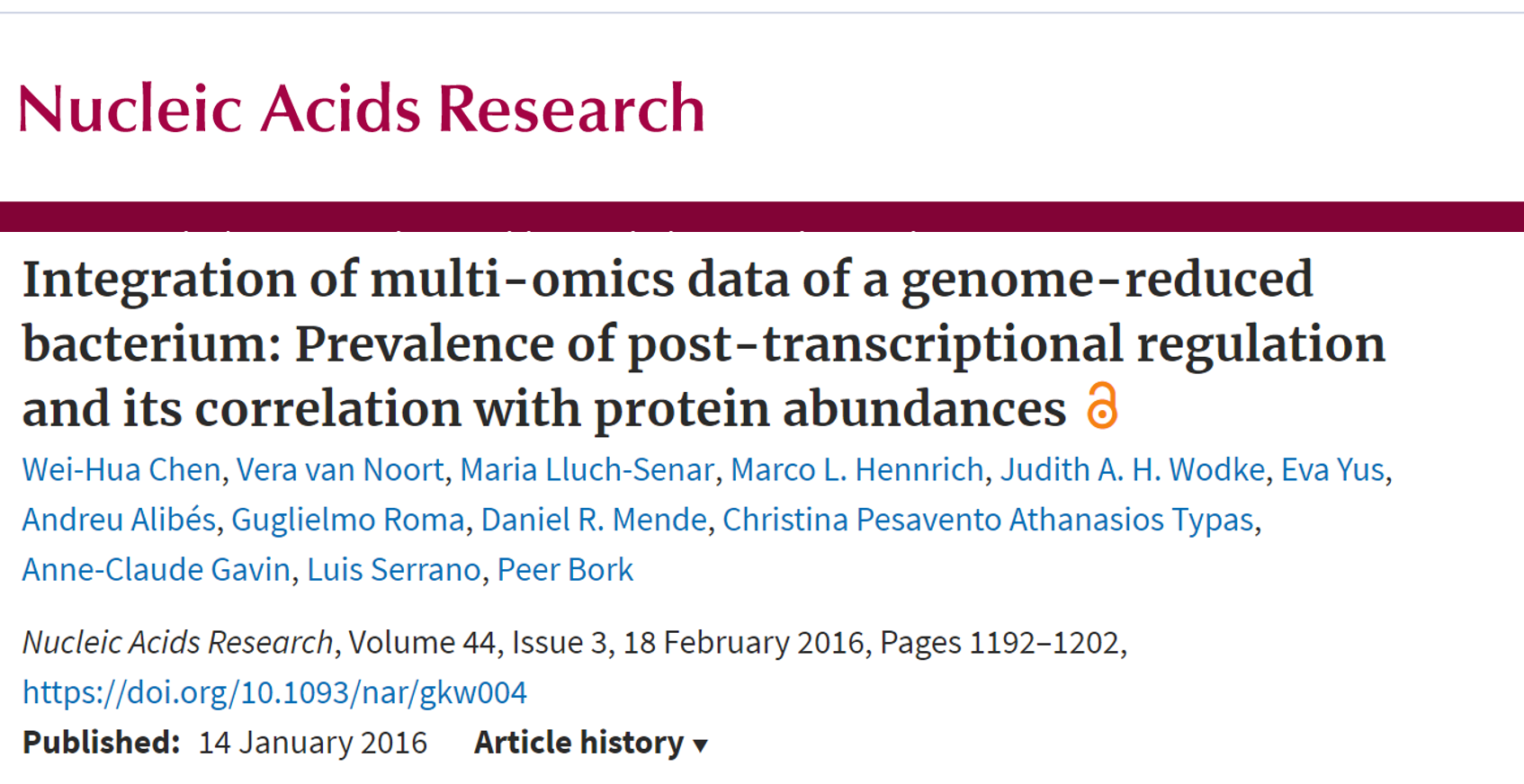Sunday, January 3, 2016
Abstract:
A comprehensive resource for the genome-reduced bacterium Mycoplasma pneumonia has been developed. It comprises 1748 consistently generated ‘-omics’ data sets, and it has been used to quantify the power of antisense non-coding RNAs (ncRNAs), lysine acetylation, and protein phosphorylation in predicting protein abundance.
Taken together, we make use of the richest resource that has been assembled so far for any bacterium, as measured by base pair coverage and diversity. This resource has a huge potential to boost systems biology research in M. pneumonia and beyond. We were able to quantify the predictive power of different factors in estimating protein abundance, many of which follow simple scaling laws, demonstrating that global principles can be derived from this genome-reduced bacterium. Indeed, these scaling principles will enable us to develop more informed approaches when engineering minimal synthetic genomes.

